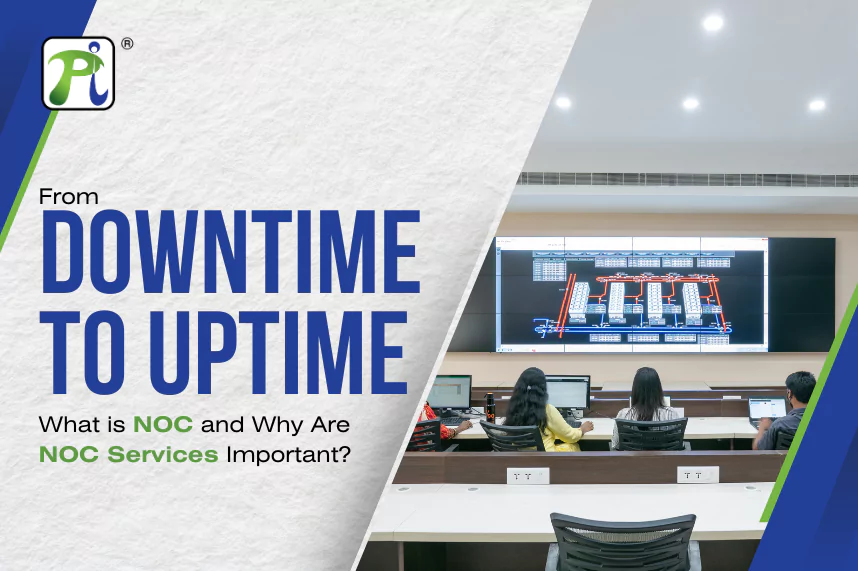We Will Get Back To You As Soon As Possible


The days of a single network administrator managing system installations, troubleshooting, and maintenance in an office are long gone. Over the past decade, network operations have transformed into a critical and increasingly complex business function. With businesses relying heavily on network analysts, operations engineers, and administrators, the demands of network management have grown significantly. This evolution is fueled by factors such as hybrid and remote work models, globally distributed offices, and the need for constant 24/7 system monitoring.
Modern businesses must oversee an intricate web of servers, databases, firewalls, internal systems, external devices, and connections. The growing complexity has created an urgent need for comprehensive network operations solutions to address everything from minor glitches to major network outages that can result in costly downtime and diminished productivity. Against this backdrop, the importance of Network Operations Centers (NOCs) becomes increasingly apparent.
Managing network operations has become more complex than ever in today's fast-evolving digital landscape. According to the 2024 State of Network Report by Broadcom, 76.4% of IT professionals report that network challenges have significantly increased in complexity compared to pre-pandemic times. Factors such as hybrid work environments, the rise of connected devices, and the widespread adoption of multi-cloud and edge computing technologies have amplified these challenges. Network Operations Centers (NOCs) have become indispensable to address these growing complexities. NOCs provide real-time monitoring, proactive incident resolution, and seamless IT infrastructure management. Their role goes far beyond simple troubleshooting; they include predictive analytics, automated workflows, and scalable operations designed to meet the demands of modern digital-first businesses. For enterprises aiming to maintain operational resilience and uninterrupted network performance, leveraging NOC services is no longer optional—it's a strategic necessity.
With the widespread adoption of cloud connectivity, securing and managing networks for businesses has become more accessible. However, network operations have grown significantly in complexity and now encompass a variety of critical activities. It is no longer just a maintenance function. A Network Operations Center (NOC) plays a pivotal role for medium to large enterprises with extensive network systems.
A Network Operations Center (NOC) is a centralized facility where IT and network administration teams work to monitor, maintain, and troubleshoot communication and networking systems. Network downtime is unacceptable, given the importance of continuous operation in today's 24/7 global business environment. Such disruptions can result in massive revenue losses, company reputation damage, and even regulatory penalties. As businesses expand their digital footprint, ensuring uninterrupted IT operations is paramount.
Downtime doesn't just slow down productivity—it can cripple entire business operations. According to Gartner, IT downtime costs organizations an average of $5,600 per minute, with costs scaling higher depending on the industry and business size. These figures can escalate to millions of dollars per hour for global enterprises.
The message is clear—businesses cannot afford downtime in today's fast-paced digital economy.
A Network Operating Center (NOC) serves as the nerve center for IT operations, where a team of skilled professionals monitors and manages an organization's network, systems, and infrastructure. Leveraging cutting-edge tools, NOCs proactively detect, analyze, and resolve potential issues to ensure uninterrupted service delivery.
Key responsibilities of NOC services include:

A global retail giant faced recurring outages during high-traffic sales events, leading to significant revenue losses. The company achieved 99.9% uptime by adopting NOC services, ensuring uninterrupted shopping experiences and boosting customer trust.
A multinational bank implemented NOC services to monitor its ATM networks and online banking systems. The result? A 30% reduction in downtime, improved customer satisfaction, and compliance with stringent regulatory requirements.
A hospital network leveraged NOC services to ensure the availability of its electronic health records (EHR) system. Continuous monitoring and proactive maintenance allowed the hospital to maintain reliable access to patient data, improving care delivery and operational efficiency.
Data centers offering NOC services provide the infrastructure and expertise required for seamless IT operations. These facilities:
In a world where even a few seconds of downtime can have far-reaching consequences, NOC services are the backbone of modern organizations. They ensure uninterrupted IT operations, enhanced security, and optimal resource utilization, allowing businesses to focus on growth and innovation. For organizations looking to stay competitive, investing in NOC services isn't just a choice—it's a necessity. From reducing costs to improving customer satisfaction, NOCs empower businesses to thrive in today's digital-first world. By adopting NOC services, businesses can transform their IT operations from a reactive cost center to a proactive value driver, ensuring they stay ahead in an increasingly connected and competitive landscape.
Questions? We're here to help.
©2026 Pi DATACENTERS® Pvt. Ltd. All rights reserved
